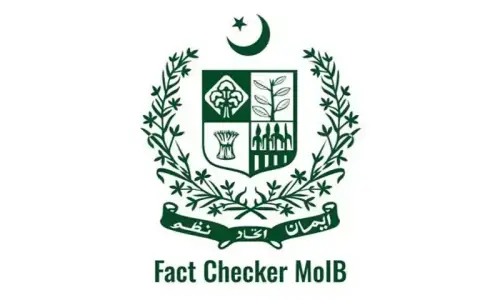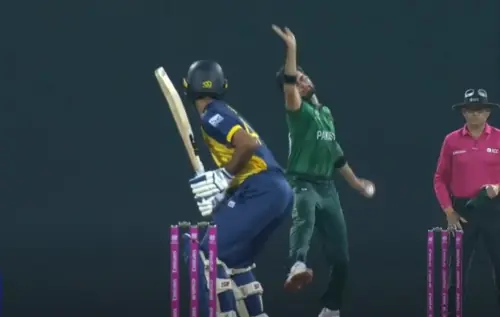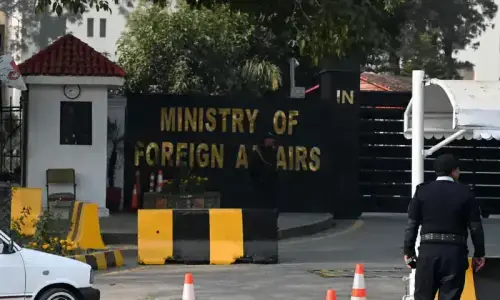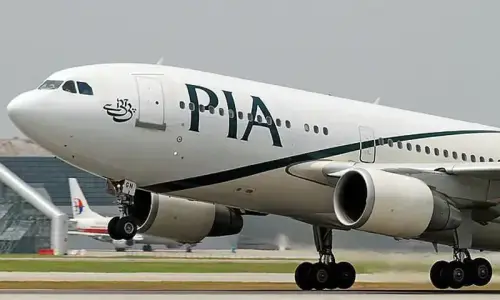"HEY charia," blustered Ali Yahya Khan on the telephone last week, "you are nearly dead. When do you intend writing the book on my father that you promised to write when he died? I sent you all the material you need long ago. Now is the time, with the Hamoodur Rahman report having again surfaced."
"Patience," I replied. "History cannot be hurried. By the way, since this is open season for many of our famous and infamous generals' sons to confess how many well earned millions have been left to them by their hard-working fathers - Ejaz-ul-Haq and Humayun Akhtar Rahman, to name but two - are you prepared to disclose what you inherited?"
Unprintable words floated down the telephone line from Rawalpindi, but regaining his inherited sense of humour Ali informed me, "I got the better half of London. You know that, you son of a..."
Not even his worst enemy could say of Yahya that he robbed his country or its people. The 'Yahya Papers' left by the general will not fill a book. But now he allowed himself to be manipulated by mediocre megalomaniacs and our 'brilliant' self-serving politicians has been written about but not correctly or exhaustively.
The last time I spoke to Yahya was in the mid-summer of 1976. Bhutto was in the throes of messing up what was left of our country. Yahya was then imprisoned in his own home at 61 Harley Street in Rawalpindi. He was standing on a raised plank (his shopping street, as he called it), leaning over his compound wall buying vegetables from a barrow-man. He waved me down and shouted, "Hey, Cowasjee, you got out of Bhutto's jail, now help get me out."
"Difficult," I told him, "but hang on, it won' be long before he falls. If he starts jailing men such as me, he has to be weak." We exchanged pleasantries, wished each other well, and I drove on.
A few columns, if not a book, are his due. Firstly, on Yahya's role on furthering peace in our world. That clever man, Henry Kissinger, wrote to Yahya on July 26, 1971 (such men can also gush):
"Dear Mr President,
"I have so many reasons to thank you that it is difficult to know where to begin."First of all, there is the vital role that you played in establishing communications between us and the People's Republic of China. Your initiative and discretion made possible the reliable and secure contacts that led to my visit and the President's forthcoming trip. You were also well served, Mr President, by your representative here. Ambassador Hilaly's part in the operation vividly demonstrated why he has compiled so remarkable a diplomatic career.
"Then, the skill, tact, and efficiency with which your officials carried out my secret mission were nothing short of brilliant. I hope you will pass on my deep appreciation, and that of the President, to all those who realized this venture, including some of your closest advisers, the military personnel who paved our way to and from the airport, and the captain and crew of your airplane. My colleagues and I were greatly moved by the historic nature of our flight and the care and warmth with which we were treated as we crossed some of the world's highest mountains.
"Mr President, the deepest thanks go to you who led and orchestrated the entire enterprise. I shall always remember your generosity in our talks on July 8 when you insisted on setting aside the massive problems that your country faces and concentrating instead on my visit to Peking. In addition, I enjoyed, and profited from, my too brief stay in Pakistan itself, the conversations we had, and the gracious Pakistani hospitality.
"Your efforts and those of your colleagues have made indelible contributions to my personal experience, the foreign policy objectives of the United States, and I believe, the goal of peace in the world."
On August 7, 1971, Richard Nixon wrote in his own hand:
"Dear Mr President,
"I have already expressed my official appreciation for your assistance in arranging our contacts with the People's Republic of China.
"Through this personal note I want you to know that without your personal assistance this profound breakthrough in relations between the USA and the PRC would never have been accomplished.
"I wish you would extend my personal thanks to your Ambassador in Washington and to your associates in Pakistan for their efficiency and discretion in handling the very sensitive arrangements.
"Those who want a more peaceful world in the generations to come will forever be in your debit.
"Dr Kissinger joins me in expressing our deepest gratitude for the historic role you played during this very difficult period."
When Bhutto took over power, Yahya was held in captivity, firstly incommunicado in a forest bungalow in Banni and then later in his own house. Throughout this period there were many who urged him to write, including his son Ali and his nephew Ahmed Ali (who as a captain and then a major had been his ADC from April 1966 to December 1969). A note from Ahmed Ali's diary in May 1974 records; "Are you writing a book these days, Sir?" "No, my son, books are written when the chapter is closed. This chapter is still very much open."
Two years later, Yahya started making notes. The originals, written in his own hand, are safe in a vault. A photocopy was sent to me by Ali:
"May 27 1976, 'Yahya Speaks':
"For the last 10 years, I have been urged by many friends to write my life history and about important events that have occurred because these are so important that future generations were bound to benefit by it.
"I, of course, never believed in writing a book, so time passed. It was only last night, May 26, that while looking at a television programme, 'Azadi ke Mujrim', wherein the last Mughal King's 'trial' by a British Military Court was shown. In this TV show, Bahadur Shah Zafar who was being tried for 'Gaddari' and how the real facts were distorted by lie, fraud, deceit and propaganda and how an imaginary young man of the 20th century advocated Bahadur Shah Zafar's case, proved that history does not always speak the truth but could be distorted by unscrupulous rulers. This made me think, because we were passing through a similar period of lies, fraud, deceit and propaganda and the distortion of facts and history.
"Am I, who is in a position to inform the nation and the world, going to let history be distorted and innocent persons maligned by a mean and unscrupulous person?
"So today, I have decided to speak. I have so much to say, right from my childhood and throughout my army service, right up to the end of 1971 that it would all need many volumes. I have no intention of doing this. I will start noting some important events.
"Hitler's propaganda Minister, Dr Josef Goebbels had said - 'tell so many lies so many times that people start believing them as truth' (or words to that effect). Nobody has been a more faithful student of Dr Goebbels than Shora."
'Shora' Who, what, I asked Ali. It was Yahya's nickname for Bhutto. In Persian slang it means 'a drooping lower lip', like that of a camel.
(To be concluded)




























